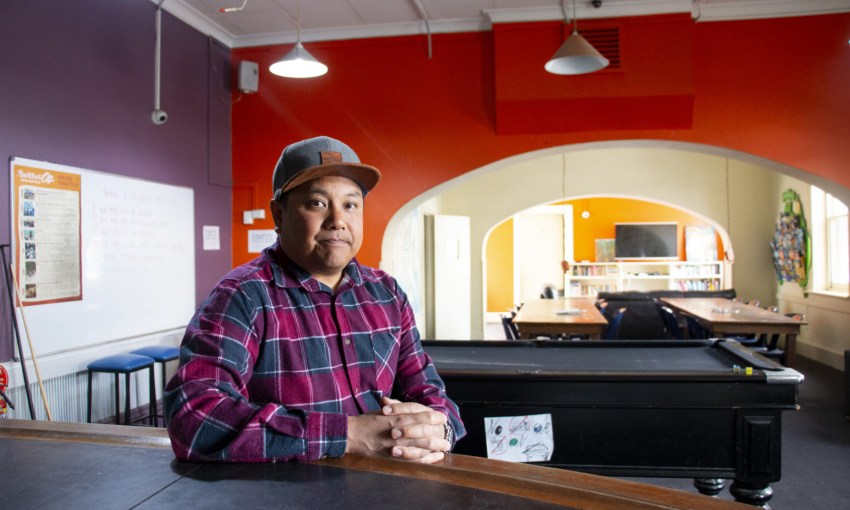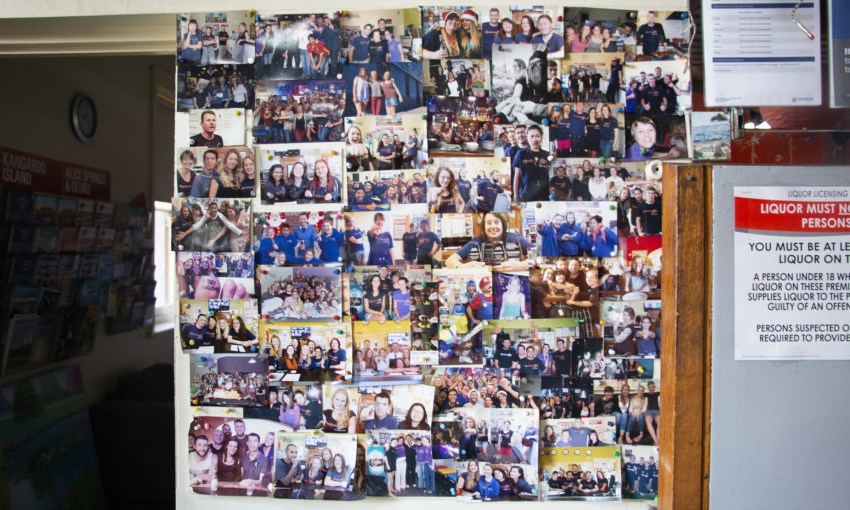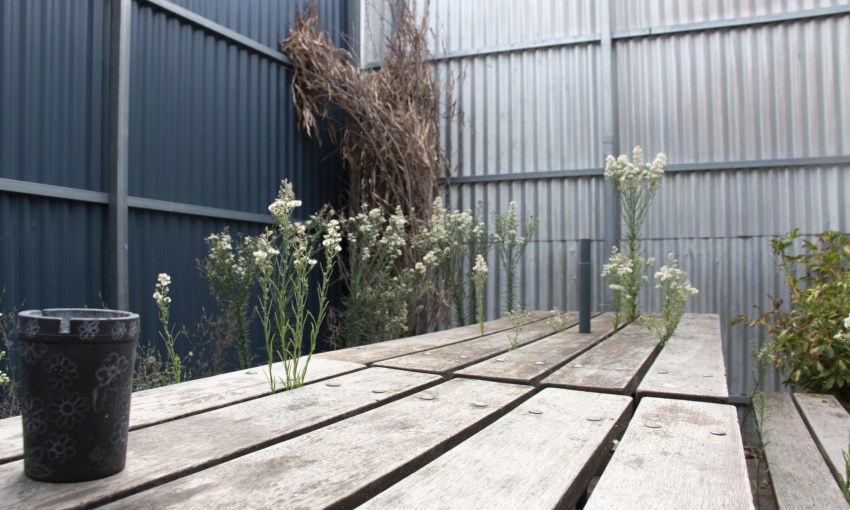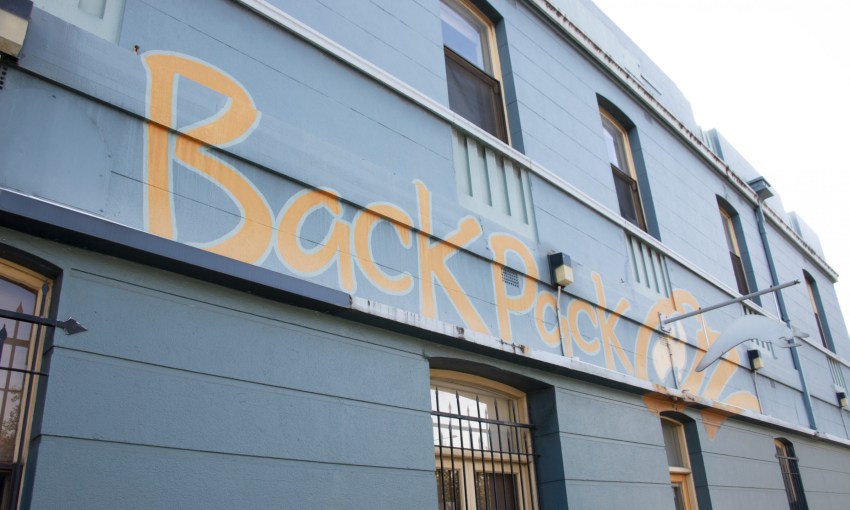Backpack Oz has been run by Sam Twelftree and his siblings since 1999, but he says his “small family business [has] been squashed” by the pandemic. He's not the only hostel owner who feels forgotten.
CBD hostel Backpack Oz has closed
SPECIAL REPORT: COVID-19 ADELAIDE
CityMag walks into Backpack Oz on Wakefield Street on a Monday morning, and we’re not the only ones.
About five businesspeople trail in behind us, greeting a salesman in a shiny suit who’s auctioning off the 372sqm, two-storey corner property.
We head to the bar to greet the owner of the building and Backpack Oz, Sam Twelftree, who’s dressed in a snapback, Vans skate shoes and a flannelette shirt.
Behind him are branded Backpack Oz stubby holders, and a mirror covered in signs reading “SORRY NO MORE BAR TABS!” and “NO SMOKING INSIDE”.
Before we have a chance to sit down, Sam points to a wall covered in photos of past employees and begins to speak.
“If you look at those pictures up there, they’re all the different staff from all around the world, a lot of Germans, French,” Sam tells CityMag.
“But the industry is gone. It’s dead.”
Sam and his siblings, Penny and Tom, have owned Backpack Oz since 1999. They purchased the business together after Sam completed a hospitality management diploma at the International College of Hotel Management. He wanted to “be his own boss” and his family wanted to help him.
As Backpack Oz’s manager, Sam was at the coalface of the business. He was the one who would clean up after the big parties, help confused tourists find their feet within postcode 5000, and vet potential employees (read: backpackers) who wanted to work at the hostel.
For Sam, this was a job that allowed him the freedom to travel when he wanted and do something he loved.
But two decades of hard work came crashing down in the span of five months when COVID-19 halted international travel and forced guests to flee.
“Within the first week, every email that came through, every phone call that was happening was a cancellation,” Sam says of the early days of the pandemic in March 2020.
“And then everyone from our other hostel across the street left, just gone because all the borders started to close down. Everyone wanted to get back.
“Probably in the first two weeks, we lost $20,000 in revenue, which is a lot for us. Maybe for a place like the Hilton [Hotel], it’s pretty small, but for us, it meant a lot.
“We went from both hostels having 120 people down to about 30.”
With all of Adelaide’s hostels in a similar position, Sam says a rate war started.
“To try to get any backpackers in, they went from normal $28, $35 a night for a dorm down to $10,” he recalls.
“Then we realised if you’ve got 30 or 40 people in only at $10, they’re still using the same number of amenities, so gas, electricity, water, but they’re not paying enough for us to pay the bills.
“Then JobKeeper came along, and that kind of was like a dangling carrot – like, ‘Okay, we can keep plodding on, JobKeeper is helping us out.’ I kept thinking in the back of my mind this will all be over in a couple of months.
“I really thought the pandemic would go away, and there would be a cure, and it would all be good.
“But by then it was August, and my sister said ‘Sam, stop painting the rooms. There’s no point. No one’s going to be in them.’
“My brother and sister said they wanted to sell and ‘We need your permission to go ahead with that’. It was almost two against one.
“I was in the playground with my youngest daughter and I started to cry. It was really, really emotional. I couldn’t believe it. It was like my soul was just ripped out of me.”
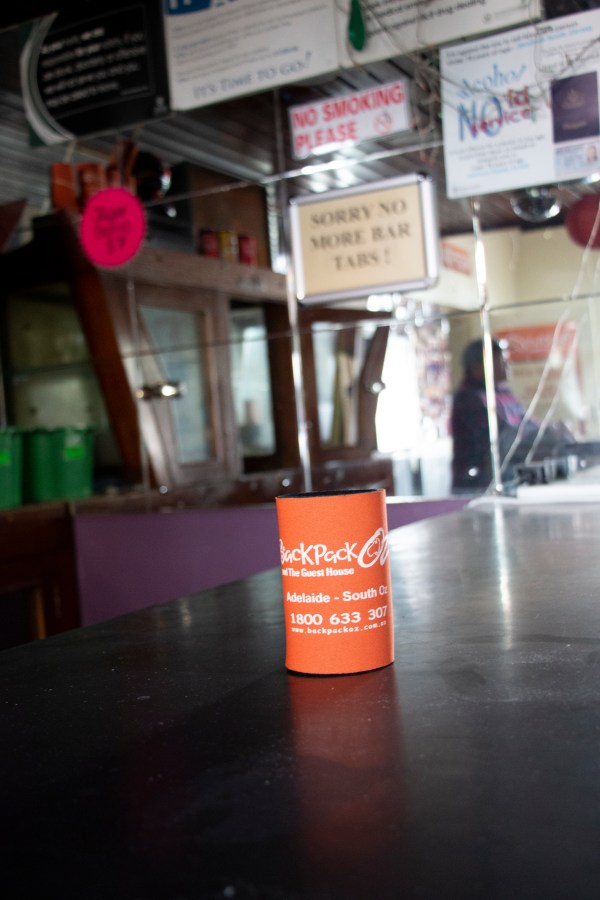
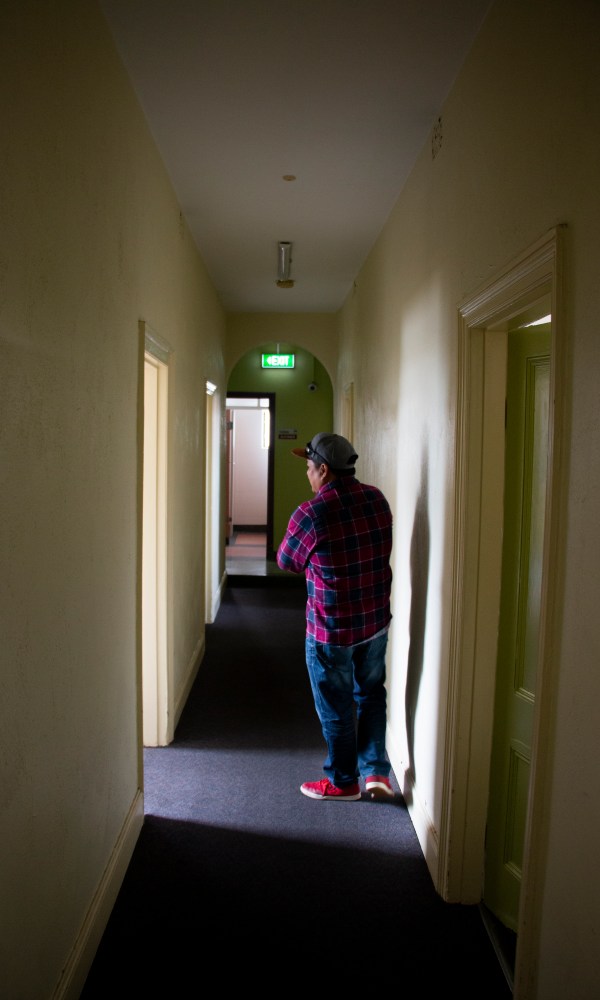
Sam says throughout the year the business received two of the State Government’s $10,000 emergency COVID-19 grants, and the Federal Government’s JobKeeper wage subsidy.
At the local government level, he says he received no help from the City of Adelaide, saying they were “brutal” in asking for roughly “$40,000 per quarter” in the form of rates.
City of Adelaide Chief Operating Officer Justin Lynch confirmed that rates didn’t change during this time, “unless a business was granted remission or postponement due to hardship.”
“The hardship provisions gave businesses an option during 2020 to apply to defer rates for three months along with fines and interest being suspended,” Justin says.
A City of Adelaide spokesperson told us 176 business owners applied for this support, with 95 successful applicants.
CityMag asked the South Australian Tourism Commission (SATC), which was the body responsible for the government’s November 2020 and February 2021 Great State Voucher schemes, what support they’ve offered to hostels during the COVID-19 pandemic.
They didn’t respond to our direct questions, or tell us how many hostels were included in the scheme in comparison to other types of accommodation.
They instead said the aim of the program was to “stimulate the visitor economy”.
Gary Locke owns Hutt Street hostel Adelaide Travellers Inn and says there weren’t many hostels included in the voucher promotion, and those who were “really had to push for it”.
He says business still is not great.
“It’s been a very big struggle,” he says.
“There’s no international travellers coming through anymore and we’re getting inundated with the other problem in Adelaide, which is the homeless.
“What we’re finding is we’re getting a lot of people that have complex mental health, drug and alcohol issues because there’s a shortage of accommodation.
“Sometimes they get booked in and then it creates another problem. We’ve had to call the police and ambulances and things like that several times because they’re left on their own. It’s not manned 24 hours.”
Gary says last year he asked the City of Adelaide and councillor Alexander Hyde to consider more support for businesses, including rent relief for those hit hardest by the pandemic. But there were hurdles regarding how the council’s money could be allocated, including whether the money would be distributed to landlords or business owners.
“The confusion was about how do you actually distribute the money,” Gary says.
Back on Wakefield Street, sitting with Sam in his big empty hostel, we see remnants of pre-COVID-19 life.
While Sam takes us on a tour through the dorms, we notice Lonely Planet travel guides lining the shelves of a makeshift library downstairs, and mints sitting on pillows in dorm rooms, ready to be eaten.
Sam says he may once again open a hostel, in the distant future, once the hardship from this property fades into a difficult memory.
“We’re just a small family business that’s been squashed,” he says, shutting the door.
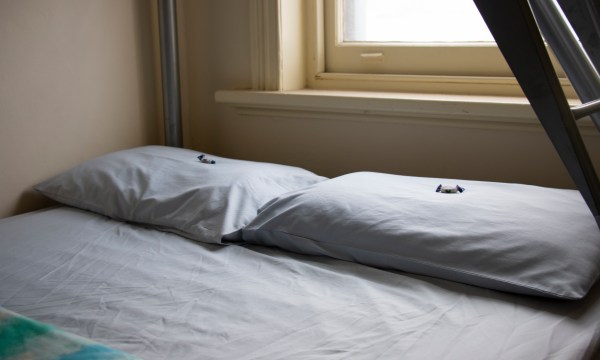
If this story raised issues for you, LifeLine is available 24 hours a day, seven days a week. Dial 13 11 14. Beyond Blue and headspace are other national organisations offering comprehensive mental health support.



